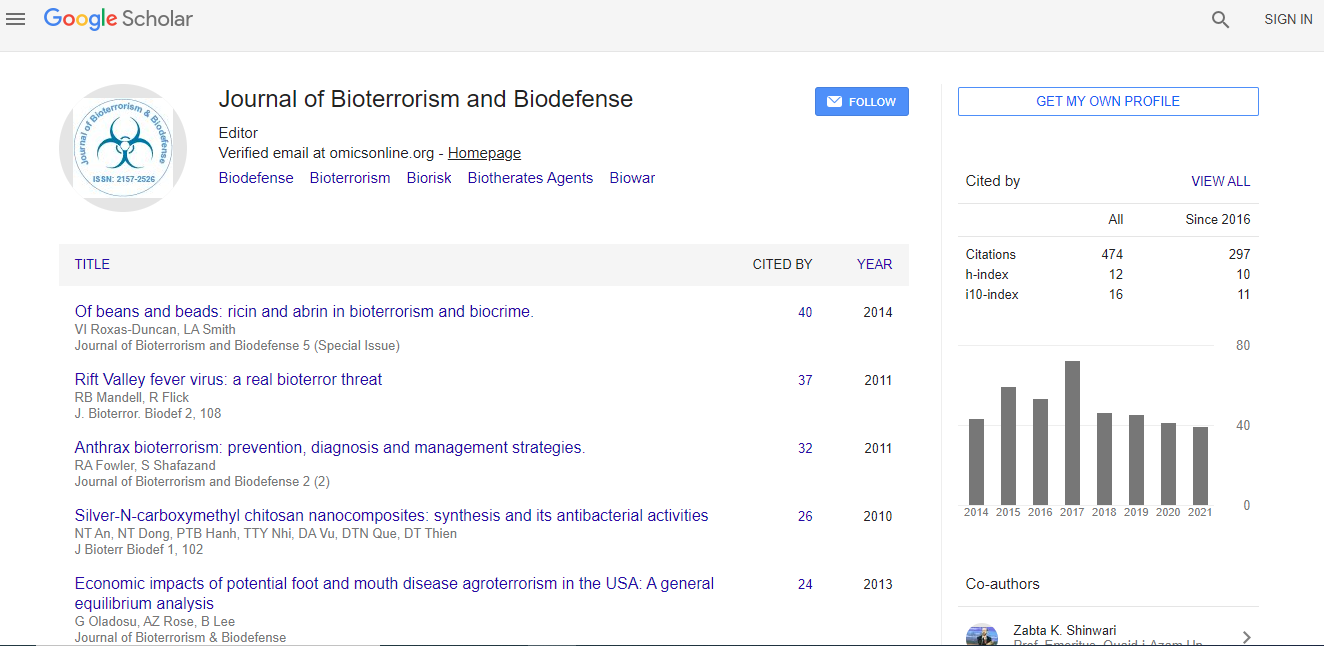Review Article
Biosecurity and Non-Communicable Diseases
Luke Allen*
WHO Global Coordination Mechanism on Non-Communicable Diseases, WHO Headquarters, 20 Avenue Appia, 1211 Geneva, Switzerland
- Corresponding Author:
- Luke Allen
WHO Global Coordination Mechanism on Non-Communicable Diseases
WHO Headquarters, 20 Avenue Appia
1211 Geneva, Switzerland
Tel: +441865289471
E-mail: allenl@who.int
Received March 15, 2016; Accepted April 23, 2016; Published April 29, 2016
Citation: Allen L (2016) Biosecurity and Non-Communicable Diseases. J Bioterror Biodef 7:145. doi:10.4172/2157-2526.1000145
Copyright: ©2016 Allen L. This is an open-access article distributed under the terms of the Creative Commons Attribution License, which permits unrestricted use, distribution, and reproduction in any medium, provided the original author and source are credited.
Abstract
Although the traditional biosecurity paradigm is concerned with the deliberate misuse of biological agents, in recent years national security strategies have widened in scope to address a much wider spectrum of biological threats. This expanding remit, partly spurred by the high-profile epidemics of the early 2000s, still does not include conditions that have been traditionally conceived as non-infectious. Non-communicable diseases (NCDs), including cardiovascular disease, diabetes, cancers, and chronic respiratory diseases, are together responsible for 70 per cent of deaths worldwide. Heart disease and cancer have long been the leading causes of death in high-income countries but the increasing availability of tobacco, alcohol, processed food and western lifestyles have led to a boom in deaths from NCDs in low-income settings over recent decades. The substantial socio-economic burden levied by NCDs can undermine political stability in fragile states by straining weak health systems and exacerbating social inequalities. This review article argues that the rise of NCDs is a threat to international security, and that departments of defence have a central role to play in the prevention and control of these diseases. NCDs compromise the integrity of standing armies, incur large military opportunity costs, threaten the health of domestic populations, restrict economic growth in the developing world, stoke socioeconomic inequalities and seed social unrest in fragile states. Greater defence spending on domestic and international efforts to promote health and manage NCDs should be a core function of defence departments mandated to promote global security.

